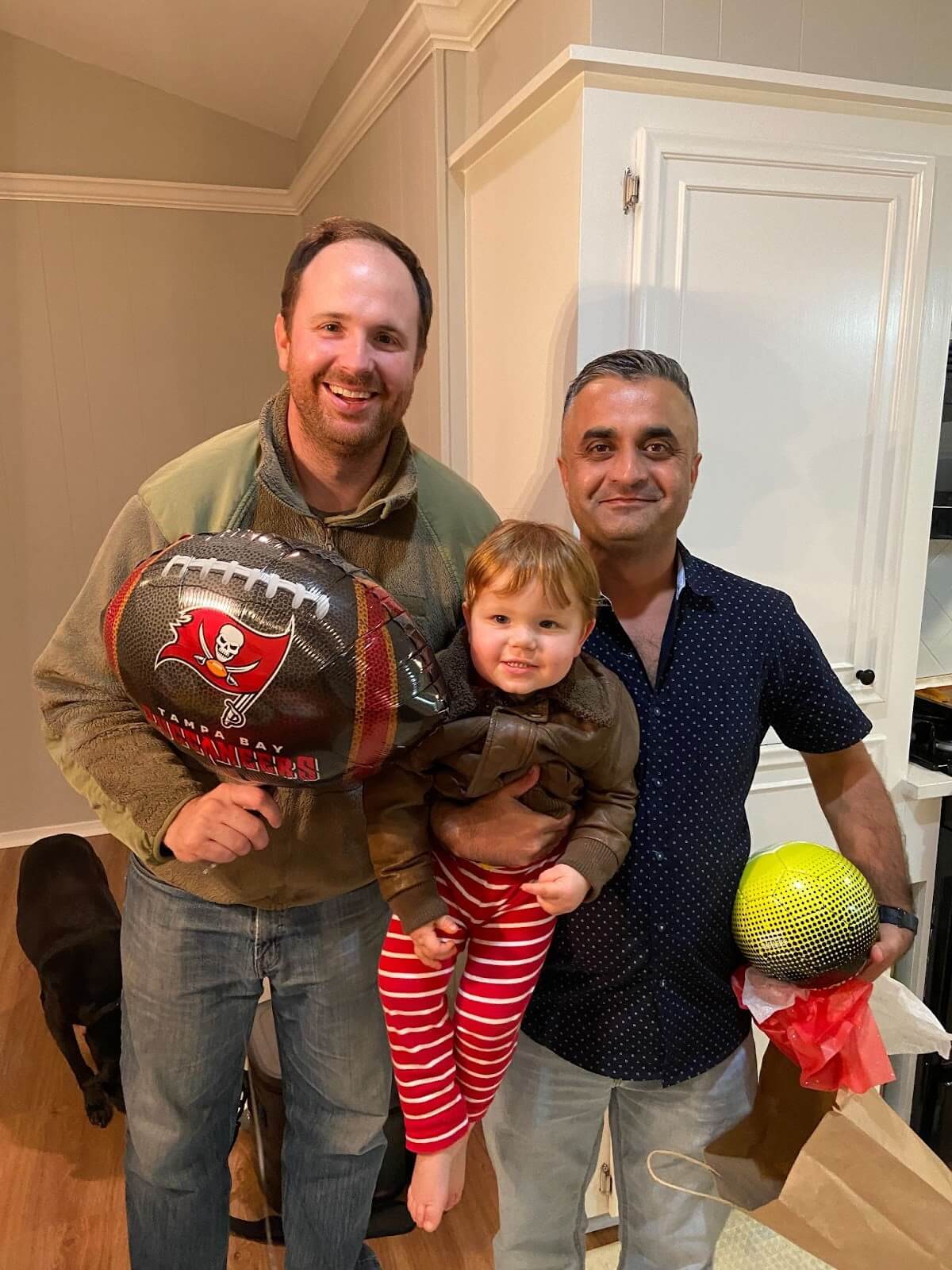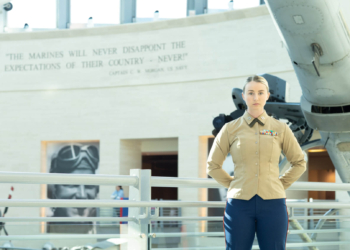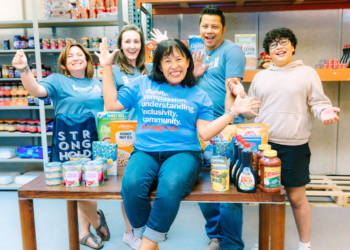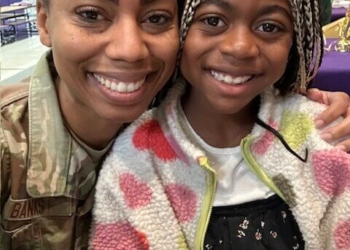For as long as he can remember, Agha has been fascinated by the history and culture of the world. As a young boy growing up in Southern Afghanistan, he couldn’t remember a time when he wasn’t studying history or language, mesmerized by the prospect of one day visiting those distant lands he read about.
He was the first in his village to attend university, and he graduated with a master’s degree. His thirst for knowledge and experience finally brought him to become a translator for a U.S. Provincial Reconstruction Team in Zabul Province, and he couldn’t have been happier with the opportunity to work alongside U.S. forces.
“It was a wonderful experience, the best experience of my life when I had a purpose in my life,” said Agha. “What I did, or what many of us did, there is pride in it.”
While working alongside U.S. forces brought deep satisfaction and fulfillment for Agha, it also came at a cost. He not only faced the threats of IEDs and gunfire daily, but the safety of him and his family would never be guaranteed again. Despite the rural area that Agha came from, word traveled fast, and rumors were abundant.
“I was fortunate enough to keep almost all of my work with American forces a secret most of the time,” said Agha. “But when a guy like me disappears for two years, they [Taliban] understand what you’re up to and where you have gone.”
Read: Afghan interpreters will go to Virginia while waiting for visas
Agha drove up to 40 miles away from his posting with the U.S. military in order to reach cell service and call home to his family. When he finally made contact, he found that his parents were being threatened by the Taliban because of his service with the U.S. military.
“So they would tell me that people in the village were talking about me,” said Agha. “There were direct and indirect threats from the Taliban to me and my family.”
He knew he had to act quickly and make a plan to leave the country. He wanted nothing more than to go to America, and he found his chance to fulfill that dream through the Department of State’s Special Immigrant Visa (SIV) program. The SIV program provides Afghans who have served as interpreters and in other critical job roles the opportunity to immigrate to the U.S. It requires two years of service, as well as a support letter and various other screenings. The entire process is congressionally mandated to take less than nine months to complete.
Agha waited six years for his visa to get approved.
After being notified that his visa was finally approved he took less than two weeks to leave Afghanistan, forgoing many of the applications for aid that he was eligible for in order to reach safety as quickly as possible.
“It was like a dream come true,” said Agha. “I could not believe it.”
Despite having a ticket to the U.S. and visa in hand, Agha had no idea where he was going to resettle — so he sent an email to his old U.S. Army supervisor asking where he should go.
“He said, ‘Come to me,’” said Agha. “And now I’m here with friends and it feels so good, I swear.”
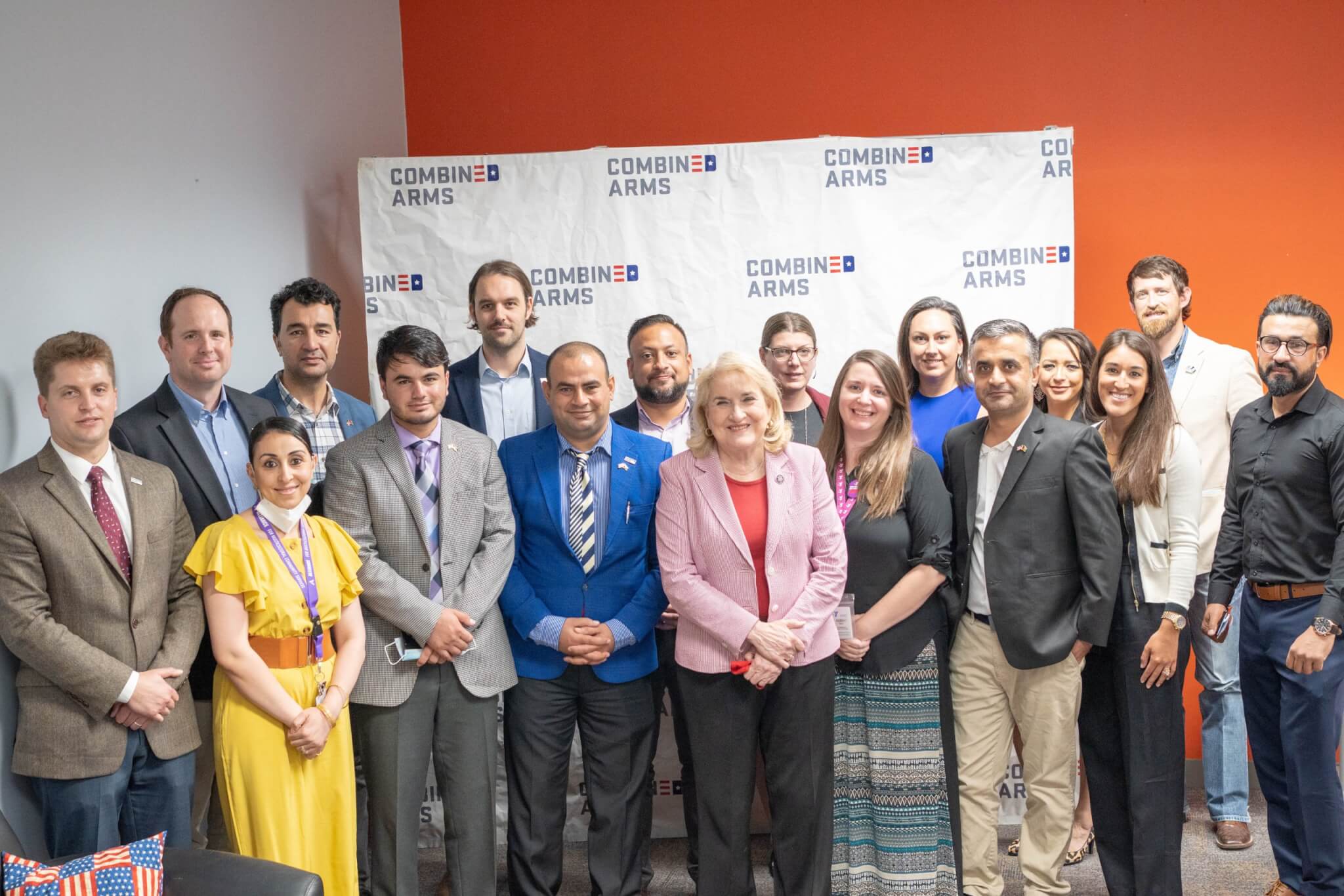
One of those friends is Blaine Hooper, an Army veteran who saw combat in Afghanistan. Hooper is also a community leader for the SIVs and Allies Group of Houston-based veteran service organization Combined Arms. He met Agha through Houston Welcomes Refugees, where he and his wife signed up to be a sponsor family and welcome new refugees to the area. Hooper says he’s proud to be helping Agha.
“We consider it an honor, because my interpreter in Afghanistan saved my life,” said Hooper. “They had our backs, and we have to have theirs — we’re honor–bound.”
Hooper and his wife help Agha with everything from explaining the concept of Walmart to helping protect him from phone scams. But most of all, they help him by offering him their friendship and being there for him when he needs a hand.
“The most decisive factor, I think, for people being successful in America is having American friends,” said Hooper.
Using understanding to ease the SIV process
Agha also points out how important military veterans who have deployed to Afghanistan are in the transition process of an SIV.
“Of course there is a huge difference in understanding and approach,” said Agha. “They understand better than most how to talk to these Afghans, how to approach them, how to communicate with them and how to help them if they need it.”
Hannah Quillin, executive director of Houston Welcomes Refugees, considers the bond between veterans and SIV families to be critical.
“While I’m building up volunteers to serve these SIVs and build strong friendships,” said Quillin, “you really can’t replace the bond that comes from serving together and those shared experiences that veterans and SIVs have.”
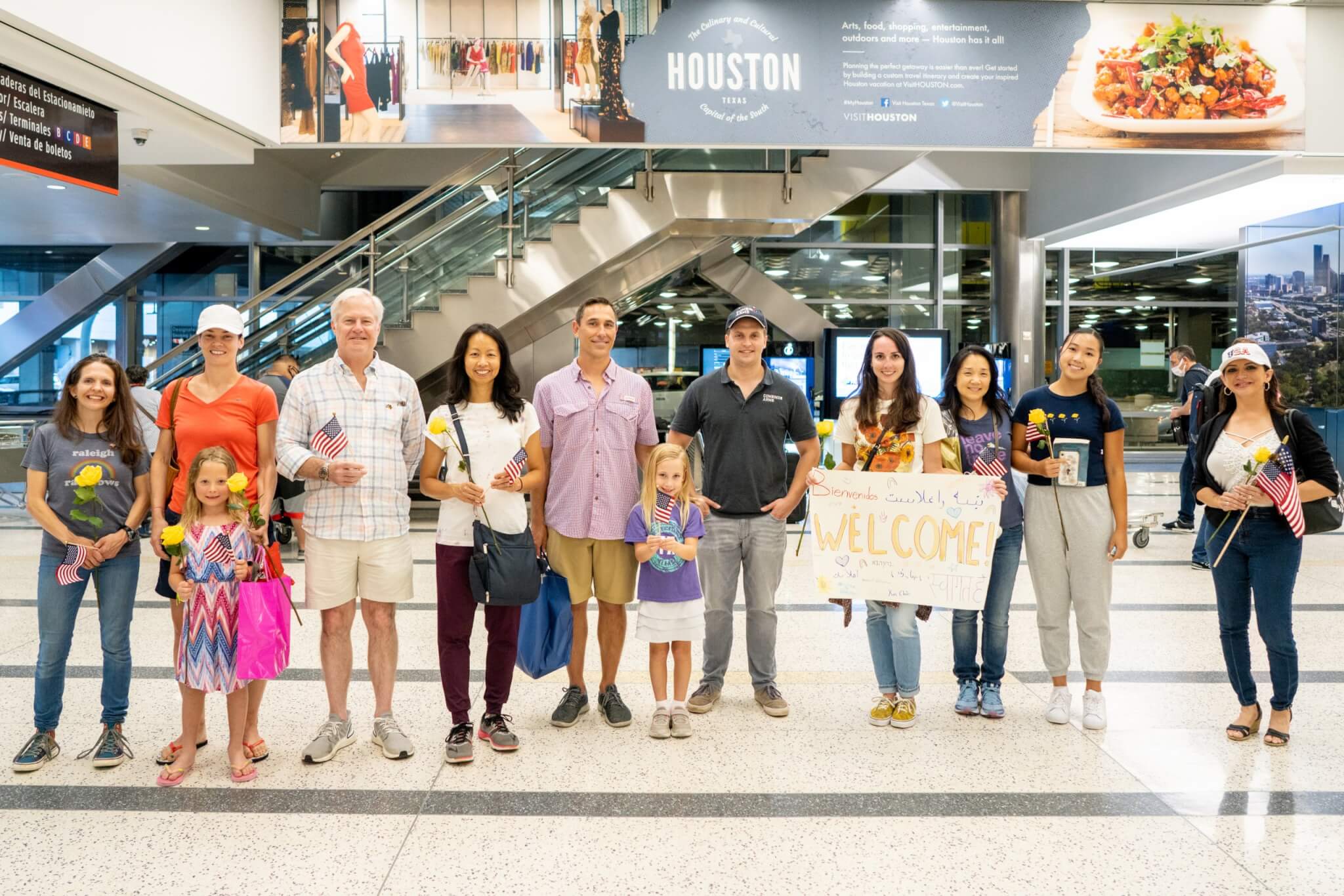
Between helping with events that Combined Arms hosts for local SIV families, attending pool parties at the Hooper family house, and going to school for his Commercial Driver’s License, Agha also finds time to volunteer. He translates for new families and helps them acclimate to their new homes. Most of all, he reminds them that no matter how difficult the road ahead seems, they’re on the right path.
“Most of us, including myself, don’t understand the magnitude of changes that we will see or face when we come to America,” said Agha. “The first thing I tell them is ‘Right now you are American, and keep this in your mind and heart — this is the most important thing.’”
Agha’s future plans include driving tractor trailers around the U.S. and seeing the country. He’s glad to be in America and is hopeful for his future.
“I strongly believe that this is the land of abundance and there are so many cool and good people that are just ready to help you,” said Agha. “Life has never been so good; I still feel like I’m dreaming.”
Read comments

